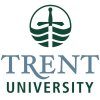Author – Academic
Highly-accomplished author and researcher with a Ph.D. degree in History and broad-based education encompassing areas of transnational history, labour, ethnicity, international relations, intelligence, law, and security.
Demonstrated record of project and publication success, advancing knowledge by researching and analysis, reviewing and editing diverse documents to make difficult concepts easy to understand. Dedicated and adaptable with meticulous attention to detail and outstanding organizational, analytical, communication and collaborative relationship-building attributes.
Recent Publications
Deportation from Canada, Part of the Canadian Historical Association’s Immigration and Ethnicity Booklet Series, Vol 36 Fall/Winter 2018
Since the eighteenth-century deportation has been an important part of the Canadian immigrant experience. While deportation as policy, in a literal sense, functions as the opposite of immigration, it shares commonalities with it by functioning as a nation-building mechanism. The state and culture of a historical period can reveal what ideas or actions were acceptable for immigrants and that simultaneously established what was and was not “Canadian.” Over the course of Canadian history, many immigrants were deported if authorities viewed them as upsetting accepted racial, gender, political, religious, or class norms. The history of deportation is inextricably linked to the history of the nation and its identity. Deportation policies and practices often set the qualifications for the type of immigrants who were welcome, and at the same time, reinforced the qualities that were desired among Canada’s citizens. In this booklet, I trace Canada’s history with deportation through the theme of nation-building, displaying the complicated relationship between the Canadian state and immigrants.
‘In the Field of Espionage, There’s No Such Thing as Peacetime:’ The Official Secrets Act and the PICNIC Wiretapping Program
Sep 2017 Canadian Historical Review (Lead Article)
In 1951 the Canadian government created P.C. 3486 in order to engage in a covert phone-tapping program against individuals, organizations and foreign governments (embassies) on Canadian soil. The program was codenamed ‘PICNIC’ and was run by the Royal Canadian Mounted Police (RCMP) Canada’s then security service, specifically out of the Special Branch. In consultation with the RCMP, the government decided to continue the phone-tapping indefinitely with the RCMP writing warrants instead of a judge. The program was continued through section 11 of Canada’s Official Secrets Act. I argue that security can be understood and interpreted as an ideological construct. What did security mean in this period to government and its intelligence services? Security was knowledge, in terms of safeguarding and hiding it, and secretly collecting it. The paper reveals the construction of state apparatus separated from the country’s legislative branch and changes our understanding of surveillance in the Cold War. In terms of wiretapping, the RCMP was not ‘going rogue’ in its targeting of individuals in the Cold War, they were following orders.
See my publications page for more.
Course Instructor for Modern Espionage
 Teaching upper-year online university course on modern espionage, intelligence and international relations. Requires advanced level knowledge of the intelligence community in numerous countries such as Canada, the United States, Britain and the Soviet Union/Russia, their history, and influence on world affairs. Requires the presentation of advanced and precise research and analysis to a student audience, complex editing and writing skills. In-depth knowledge of intelligence organizations within government, their relationship to government clients and policy makers, intelligence theory and systems such as the intelligence cycle.
Teaching upper-year online university course on modern espionage, intelligence and international relations. Requires advanced level knowledge of the intelligence community in numerous countries such as Canada, the United States, Britain and the Soviet Union/Russia, their history, and influence on world affairs. Requires the presentation of advanced and precise research and analysis to a student audience, complex editing and writing skills. In-depth knowledge of intelligence organizations within government, their relationship to government clients and policy makers, intelligence theory and systems such as the intelligence cycle.
Course Instructor for History of Modern Espionage

Upper-year university course on the history of espionage, intelligence and international relations. Requires advanced level knowledge of the intelligence community in numerous countries such as Canada, the United States, Britain and the Soviet Union/Russia, their history, and influence on world affairs. Requires the presentation of advanced and precise research and analysis to a student audience, complex editing and writing skills. In-depth knowledge of intelligence organizations within government, their relationship to government clients and policy makers, intelligence theory and systems such as the intelligence cycle.
• Expert knowledge of major intelligence successes and failures, technology and its relationship to intelligence and state institutions, as well as issues of central concern to intelligence such as the relationship between intelligence and diverse communities in North America and Britain, emergency legislation, and intelligence related laws and legislation, constitutional concerns and human rights.
• Advanced knowledge of Cold War conflicts between world powers and non-aligned states, as well as advanced knowledge of global affairs and international conflicts in Asia and the Middle East and challenges for intelligence communities in terms of analysis and collection.
• Organized public lecture by Reid Morden, former Director of CSIS, entitled “It’s Intelligence gathering Not Policing: Transitioning from the RCMP to CSIS.” 1 March 2016.
Course Instructor

Teaching university level courses in Canadian history, modern consumption and the First World War. Presentation of advanced research and analysis focusing on themes such as politics, international relations, identity, security and society. Presenting and teaching advanced understanding of sensitive cultural and political issues such as multiculturalism, Charter of Rights and Freedoms as well as security and intelligence legislation and laws. Utilize experiential learning techniques including real-time scenario based learning strategies. Requires advanced oral and written skills.
